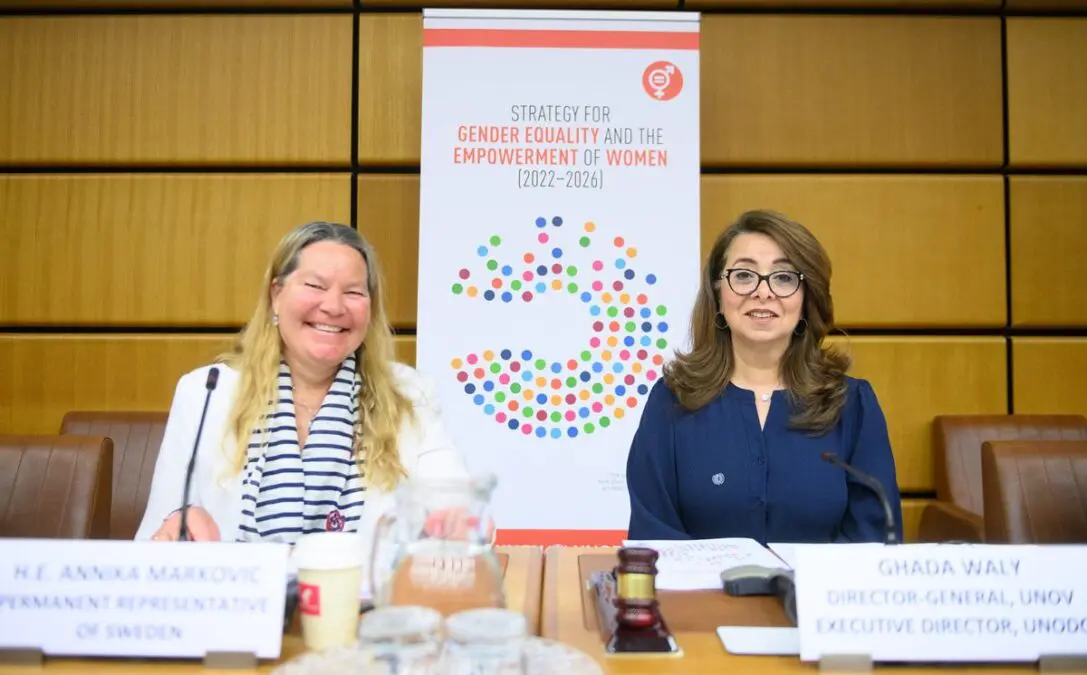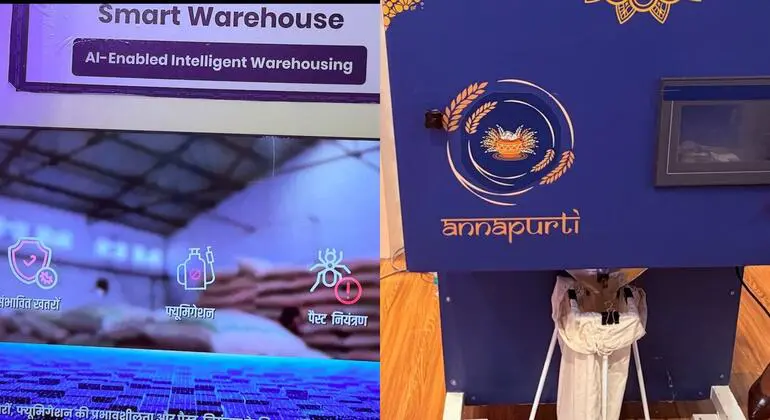One step closer to global peace and security for all: launch of the second UNOV/UNODC Strategy for Gender Equality and Women’s Empowerment
Vienna (Austria), 15 May 2022 – Imagine a world with no crime or corruption, a world where everyone can access the criminal justice system equally and is safe from terrorist attacks. What would this look like to you?
At the UN Office on Drugs and Crime (UNODC), we see this as a world where everyone has an equal understanding of their legal rights and equal opportunities to services and livelihoods. A world where no matter your gender, whether you are a man or a woman, regardless of your personal background and context in which you live, you are able to equally and equitably participate in life.
You may ask yourself, what does organized crime, the world drug problem, terrorism, and corruption have to do with gender? The link is a lot stronger than you may think, both in terms of participation and experiences of victimization. Gender does not only influence our access to services and the way we perceive our responsibilities in life, but also shapes the perceptions of roles played in criminal activities.
The evidence is clear – just look at the world drug problem. Studies have shown that while one in three women are drug users, they only make up one in five of those accessing treatment. The correlation between gender and access to services is undeniable. Meanwhile, over 70 per cent of victims of trafficking in persons are women.
UNODC is committed to mainstreaming gender equality and women’s empowerment across all its activities, projects and programmes. Since 2018, when the first UNOV/UNODC Strategy for Gender Equality and Women’s Empowerment (2018-2021) launched, UNODC has actively been supporting Member States in ensuring a gender-responsive approach to tackling the world drug problem, organized crime, terrorism, and corruption.

Building on the momentum from the past four years, UNOV/UNODC is proud to launch the second Strategy for Gender Equality and Women’s Empowerment (2022-2026), with the aim of not only building on the progress that has already been made but also ensuring that we are one step closer to achieving equality for all.
“We can help ensure that crime prevention and criminal justice responses are fair, effective, and accountable, meeting the needs of all members of society and leaving no one behind,” said UNODC Executive Director Ghada Waly on the launch of the strategy.
In the new Strategy, UNODC has committed to an intersectional approach to gender equality and women’s empowerment – meaning that interventions are based on an understanding of people’s backgrounds, identities and characteristics – as well as to ensuring that the implementation of the Strategy is contextualized to field-specific contexts.
For this to be achieved, it is key that all personnel and staff, both men and women, are agents and champions of change – and for this reason, the Strategy actively encourages men’s engagement in these issues.
Only if we collaborate and work together can UNODC contribute to global peace and security, human rights and development, and a world that achieves equality for all.






